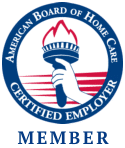If you are a family caregiver attending to a loved one with Alzheimer’s or dementia, you may already understand the challenges you are up against. Caring for a person with Alzheimer’s or dementia requires careful patience, attention, creativity, knowledge of the disease and its symptoms, and a specific skill set to handle the unique difficulties that will inevitably present themselves.
Of paramount concern is ensuring the individual with Alzheimer’s is kept safe, because, as you know, this disease destroys memory and thinking skills. Individuals with Alzheimer’s and dementia are at a very high risk for accidents or injury if the home and caregiver are not well prepared.
The National Institute on Aging created a wonderfully helpful booklet, jam-packed with incredibly useful information about Alzheimer’s, as well as a room-by-room safety guide for keeping your loved one safe. We invite you to download this free booklet here.
Below we will outline some of the most important Alzheimer’s home safety tips courtesy of our own experienced caregivers. If at any point you feel you need help caring for your loved one with Alzheimer’s or dementia, please contact Canaan Home Care. We can have a licensed caregiver to your home within approximately one hour if necessary. 1-844-CANAAN-1
Alzheimer’s Home Safety Tips
As you’ll see, the overriding themes here are common sense and safety. As your loved one’s memory and cognitive skills begin to fade, you’ll need to take extra steps to minimize the potential dangers in the home, as you would with a young child. Ask yourself these questions in every room of the home, then take steps to secure the area and minimize risks:
- What could be tripped over?
- Where could a slip-and-fall happen?
- Could they be burned or start a fire?
- If they fell, what might they hit?
- What could be ingested that’s harmful?
- What is sharp?
- What could cause electrocution?
Post emergency numbers in a few areas of the home to be easily accessed in case of an accident.
Kitchen
1. Prevent access to potentially dangerous items, such as appliances and sharp tools. Use stove knob covers and install cabinet/drawer locks to secure matches, scissors, knives, and more.
2. Prevent access to poisonous items such as alcohol and cleaning supplies.
3. Keep plastic bags out of reach.
(Stove knob covers and cabinet locks can be purchased at a home improvement/hardware store or a retailer that sells baby and child safety items.)
Bathroom
1. Install a shower chair and grab bars in the shower and near the toilet and bathtub.
2. Place nonskid mats in the shower and bathtub, and on uncarpeted floors.
3. Place a cover over the bathtub faucet to minimize injury in case of a fall. (These can also be purchased where baby and child safety products are sold.)
4. Be sure all medications have child-proof lids or are stored in a locked cabinet.
5. Install cabinet and/or drawer locks and keep electrical appliances (hair dryers, etc.) out of reach.
6. Set your water heater thermostat to below 120 degrees Fahrenheit.
7. Remove door locks to prevent your loved one from locking themselves into the bathroom.
Bedroom
1. Use a monitor. A simple baby monitor will suffice, just something that enables you to hear if your loved one needs help.
2. Do not use portable space heaters or electric blankets in your loved one’s bedroom.
3. Use night lights. If your loved one tends to get up for water during the night, put some water by their bed.
4. Remove and disable guns or other weapons from the home or place in a secure, locked storage cabinet.
Living Room
1. Be sure all electrical cords are out of the way and leave a clear path for walking.
2. Cover all unused electrical outlets.
3. Limit knick-knacks and decorative objects.
4. Keep plants trimmed, and remove plants that are toxic if eaten.
Laundry Room & Garage
1. Lock up toxic chemicals such as cleaning agents, detergents, bleach, paint, bug and pest killer, pesticides, fertilizer, gasoline, etc.
2. Prevent access to the washer and dryer.
3. Lock all vehicles. If your loved one has advanced dementia, consider removing bicycles and vehicles that aren’t used often.
Outdoors
1. Restrict access to pools with a fence and locked gate and cover and lock hot tubs.
2. Avoid clutter and put away toxic or dangerous items.
3. Repair unsafe steps, cracks, holes, or uneven walkways.
4. Keep walkways well-lit.
For assistance caring for a loved one with Alzheimer’s or dementia, please contact Canaan Home Care today! 1-844-CANAAN-1
- Follow These Four Steps and Create a Respite Plan - December 18, 2020
- End of the Year Holidays Can Cause Aging Veterans to Feel Lonely, but What About Home Care? - December 11, 2020
- Is Your Senior Battling Edema in Her Legs? - December 3, 2020




